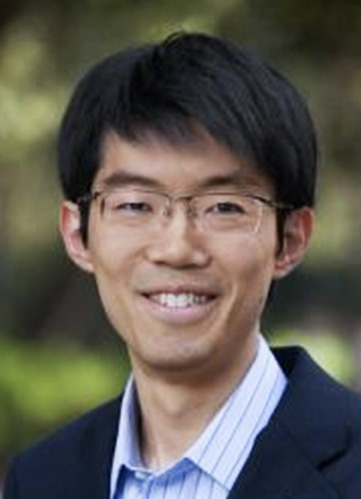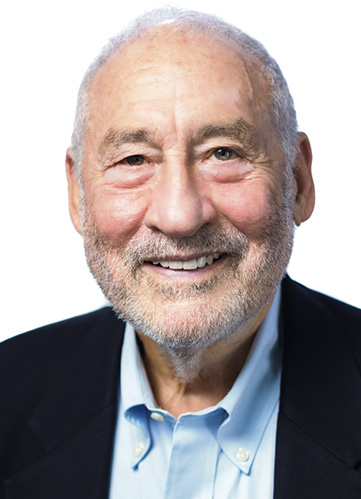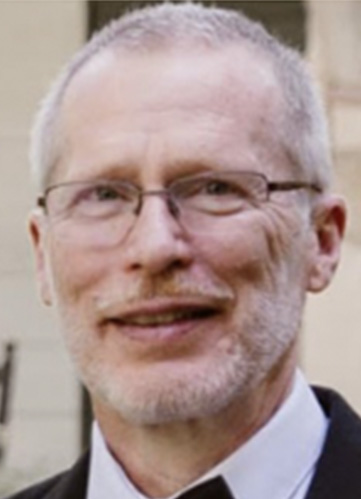
Hear from the plenary speakers at the 21st annual Society for the Advancement of Economic Theory (SAET) 2022 conference.
Saturday 16 July – Friday 22 July at The Australian National University.
Refreshments will be available.
The Debreu Lecture – Random rationalizability
Presented virtually by Professor Chris Shannon from UC Berkeley
Sunday 17 July, 11am–12pm (AEST)
Manning Clark Hall, Cultural Centre, Kambri
ANU Building 153, University Avenue, Canberra
Note: Professor Chris Shannon will be hosting the lecture remotely. However, attendees are encouraged to join the lecture together at Manning Clark Hall in Kambri.
Her paper studies the testability of theories when data might be subject to measurement error. The paper considers a general revealed preference framework for rationalizing data and refuting theories subject to noisy observations. The paper gives several conditions under which features of a model might be estimated or tested using such data, making use of ideas in topological data analysis. Examples including consumer demand and general equilibrium illustrate the main results.
 About Professor Chris Shannon
About Professor Chris Shannon
Chris Shannon is a professor at UC Berkeley. She earned undergraduate degrees from the University of Kansas, and a PhD from Stanford University. From 2012–2013, she was the Richard Merkin Professor of Economics and Mathematics at Caltech. She is currently the Richard and Lisa Steiny Professor of Economics and Professor of Mathematics at UC Berkeley.
The MacKenzie Lecture – Informational requirements for cooperation
Presented virtually by Associate Professor Takuo Sugaya from the Stanford Graduate School of Business
Monday 18 July, 2.30–3.30pm (AEST)
Manning Clark Hall, Cultural Centre, Kambri
ANU Building 153, University Avenue, Canberra
Note: Professor Takuo Sugaya will be hosting the lecture remotely. However, attendees are encouraged to join the lecture together at Manning Clark Hall in Kambri.
His paper analyses how discounting and monitoring jointly determine the prospects for cooperation in repeated games with imperfect (public or private) monitoring. The main result derives a simple bound on the average strength of players’ incentives as a function of discounting, monitoring precision, and payoff variance. The paper also shows that the bound is tight in the low-discounting or low-monitoring double limit, by establishing a folk theorem where the discount factor and monitoring structure vary simultaneously.
 About Associate Professor Takuo Sugaya
About Associate Professor Takuo Sugaya
Takuo Sugaya is an Associate Professor of Economics at the Stanford Graduate School of Business, where he teaches Managerial Economics. His current research focuses on dynamic games – repeated games and stochastic games – and the environments in which different sides engage in cooperative long-run relationships. His research covers both theoretical possibilities of cooperation, such as folk theorem in dynamic games, and applications, such as collusion among firms and dynamic incentives of anti-trust regulators.
He received his PhD in Economics from Princeton University in 2012, and his MA in Economics and BA in International Relations from the University of Tokyo. He is currently an associate editor of the Journal of Economic Theory.
The Presidential Lecture – Nash and Walras
Presented virtually by Emeritus Professor Andreu Mas-Colell from the Universitat Pompeu Fabra
Monday 18 July, 6.15–7.15pm (AEST)
Manning Clark Hall, Cultural Centre, Kambri
ANU Building 153, University Avenue, Canberra
Note: Professor Mas-Colell will be hosting the lecture remotely. However, attendees are encouraged to join the lecture together at Manning Clark Hall in Kambri.
This lecture will be a survey of historical and more recent theoretical developments on the interplay of the concept of Nash Equilibrium for games and of Walras equilibrium for economies. In particular, this lecture will focus on existence and on the issue of viewing Walras equilibrium as the Nash equilibrium of a suitable game, with a glimpse to the converse problem.
 About Emeritus Professor Andreu Mas-Colell
About Emeritus Professor Andreu Mas-Colell
Andreu Mas-Colell is currently Emeritus Professor of Economics at the Universitat Pompeu Fabra, Barcelona, affiliated professor at the Barcelona School of Economics and Chairman of the Barcelona Institute of Science and Technology. Formerly he was Professor of Economics at Harvard University (1981-96) and Professor of Economics and Mathematics at the University of California, Berkeley (1972-80). He has written over one hundred research papers on theoretical topics centred in general equilibrium theory and game theory.
He is the author of The Theory of General Economic Equilibrium: A Differentiable Approach (Cambridge University Press, 1985) and co-author with M. Whinston and J. Green, of the graduate textbook Microeconomic Theory (Oxford University Press, 1994).
He has served as main Editor of the Journal of Mathematical Economics (1985-88), and of Econometrica (1988-92). He is also a Fellow of SAET and was President of the Econometric Society in 1993. In 1997 he was elected International Member to the US National Academy of Sciences and Foreign Honorary Member of the American Economic Association. He has been a Sloan Fellow (1978-1980) and Guggenheim Fellow (1985-1986). From 1999 to 2005, he was a member of the Executive Committee of the International Economic Association. In the year 2006, he served as President of the European Economic Association. In 2021, he was elected president of the Society for the Advancement of Economic Theory.
He holds Honoris Causa Doctorates from the universities of Alacant, Toulouse, HEC (Paris), Universidad Nacional del Sur (Argentina) and Chicago. He has received the Rey Juan Carlos Prize in Economics (1988), the National Research Prize of Spain (2006), and the Premio Fundación BBVA Fronteras del Conocimiento en Economía, Finanzas y Gestión de Empresas –shared with Hugo Sonnenschein (2009).
He has been Minister for Universities and Research of the Government of Catalonia (2000-2003), President of the Advisory Scientific Committee of Telefónica Investigación y Desarrollo (2005-2008), General Secretary of the European Research Council (2009-2010) and Minister of Economy and Knowledge of the Government of Catalonia (2010-2015).
The Goldsmith Lecture – What economic theory really says about the role and conduct of economic policy?
Presented by Professor Joseph E. Stiglitz
Tuesday 19 July, 10.45–11.45am (AEST)
Manning Clark Hall, Cultural Centre, Kambri
ANU Building 153, University Avenue, Canberra
In recent decades, there have been notable advances in both macroeconomic and microeconomic theory, but unfortunately, many of these advances are predicated on models and assumptions that are distant from actual economies, and provide less guidance that one would have hoped.
This lecture considers three examples: macroeconomics, based on DSGE models; climate policy, based on IAM models; or incentive models, based on the conventional model of consumer behaviour.
In the first case, the models supported policies that led to the Great Recession and provided little guidance on how to respond.
In the second case, they have put economists at odds with the rest of the scientific community, which is worried about any increases in temperature beyond 1.5 to 2 degrees Celsius.
In the latter case, excessive reliance on material incentives has sometimes resulted in poorer performance. There are alternative theoretical approaches, however, that hold out the promise of better and more relevant guidance for the conduct of economic policy.
 About Professor Joseph E. Stiglitz
About Professor Joseph E. Stiglitz
Joseph E. Stiglitz is an American economist and a professor at Columbia University. He is also the co-chair of the High-Level Expert Group on the Measurement of Economic Performance and Social Progress at the OECD, and the Chief Economist of the Roosevelt Institute. He was awarded the Nobel Memorial Prize in Economic Sciences in 2001 and the John Bates Clark Medal in 1979.
He is a former senior vice president and chief economist of the World Bank and a former chairman of the US Council of Economic Advisers. In 2000, he founded the Initiative for Policy Dialogue, a think tank on international development based at Columbia University. In 2011, he was named by Time magazine as one of the 100 most influential people in the world. Known for his pioneering work on asymmetric information, his research focuses on income distribution, climate change, corporate governance, public policy, macroeconomics and globalisation. He is the author of numerous books including, most recently, People, Power, and Profits, Rewriting the Rules of the European Economy, and Globalization and Its Discontents Revisited.
The Trevor Swan Lecture – The coordination paradigm
Presented by Professor Richard Holden from the UNSW Business School
Wednesday 20 July, 11am–12pm (AEST)
Manning Clark Hall, Cultural Centre, Kambri
ANU Building 153, University Avenue, Canberra
Increasing returns to scale arise in many situations including in R&D, in environments subject to technological change, or with learning-by-doing. These increasing returns can lead to multiple equilibria. If inputs are centralised, this presents no problem. But if inputs are decentralised then increasing returns lead to a coordination problem. In recent years, literature has emerged that studies how such coordination problems can be solved—for instance, by a central network player, through “block capital”, or by organisation design. Solving these coordination problems is a pervasive issue in practice—especially in the “new economy”—and it presents new and interesting challenges for economists studying these environments.
 About Professor Richard Holden
About Professor Richard Holden
Richard Holden is professor of Economics at UNSW Business School, and President of the Academy of the Social Sciences in Australia. He received a PhD from Harvard University and was a faculty member at MIT and the University of Chicago before returning to Australia.
He has published in leading economics journals such as the Quarterly Journal of Economics, American Economic Review, Journal of Political Economy, and Review of Economic Studies. His popular writings have appeared in outlets such as the New York Times, Australian Financial Review, The Australian and The Sydney Morning Herald. He is currently a regular columnist for the Australian Financial Review.
He is a fellow of the Econometric Society, and of the Academy of Social Sciences in Australia.
The Cass Lecture – Decentralised-market design
Presented by Professor Marzena Rostek from the University of Wisconsin-Madison
Wednesday 20 July, 2–3pm (AEST)
Manning Clark Hall, Cultural Centre, Kambri
ANU Building 153, University Avenue, Canberra
Most markets are fragmented; many are dominated by large traders who have price impact. One of the salient developments in market design in recent years has been the work motivated by new data and questions concerning market fragmentation and imperfect competition. This talk will review recent advances in the literature on market design. Open problems will be discussed.
 About Professor Marzena Rostek
About Professor Marzena Rostek
Marzena Rostek is the Juli Plant Grainger Distinguished Chair of Economics at the University of Wisconsin-Madison. She received her PhD from Yale University (2006) and was a postdoctoral research fellow at Nuffield College at Oxford University (2007/8). Her research focuses on market design, with a special focus on the effects of market fragmentation and the strategic behaviour of large players. Rostek currently serves as an editor of the Journal of Economic Theory and an associate editor of Econometrica, Economic Theory, Economic Theory Bulletin, and the Journal of Economic Literature. She is a SAET Fellow and has been appointed a board member of the Finance Theory Group.
The Hicks Lecture – Wishful, inattentive or rational? Building bridges between decision theory and stochastic growth
Presented by Professor Larry Samuelson from Yale University
Thursday 21 July, 11am–12pm (AEST)
Manning Clark Hall, Cultural Centre, Kambri
ANU Building 153, University Avenue, Canberra
His paper develops connections between stochastic growth problems and decision problems. He studies processes that can be interpreted as population growth or wealth accumulation and shows that the outcomes of these processes can depend critically on realisations of the uncertainty that are extremely unlikely but that have extremely important implications for growth. Using these results, he shows that wishful thinking decision problems are behaviourally equivalent to utility maximisation problems, and that rational inattention problems are equivalent to optimal portfolio problems. The growth process generates extreme (wealth or genetic) inequality. The winners under a growth process incorporating idiosyncratic risk face an empirical distribution of shocks that equals the subjective probability distribution chosen by the wishful thinker. The winners under aggregate uncertainty face an empirical joint distribution of states and actions equal to that of the optimizing rationally inattentive decision maker. As an example of how these connections can be exploited, he shows that rational inattention techniques can be used to solve the optimal portfolio problem.
 About Professor Larry Samuelson
About Professor Larry Samuelson
Larry Samuelson is the A. Douglas Melamed Professor of Economics at Yale University and the former Director of the Cowles Foundation for Research in Economics. He earned his B.A. from the University of Illinois in 1974 and his PhD in Economics from the University of Illinois in 1978.
He has previously held faculty positions at the University of Florida, Syracuse University, Penn State University and the University of Wisconsin. He works in economic theory, with a particular interest in game theory.
He has served as a co-editor of Econometrica, the American Economic Review, and the American Economic Review: Insights, and the president of the Game Theory Society, and in various roles in the Econometric Society. He is a Fellow of the Econometric Society and the American Academy for the Arts and Sciences.
The John Mitchell Lecture – The Voltage Effect: How to make good ideas great and great ideas scale
Presented by Professor John A. List from the University of Chicago and The Australian National University
Friday 22 July, 2–3.30pm (AEST)
Superfloor (Level 6), Marie Reay Teaching Centre, Kambri,
ANU Building 155, University Avenue, Canberra
Note: when registering, you can also select to join Professor John A. List at a workshop beforehand on early education, as well as a book signing for The Voltage Effect after his lecture.
This lecture delves into Professor John A. List’s book The Voltage Effect. Why do some ideas make it big while others fail to take off? The answer comes down to a single question – Can the idea scale? “In his book, Professor List argues that for an idea to have a widespread impact, it must achieve ‘high voltage’ – the ability to be replicated at scale. By understanding how scaling works, he says, we can drive change in our schools, workplaces, communities, and society at large. Because a better world can only be built at scale.” – Wall Street Journal.
 About Professor John A. List
About Professor John A. List
Professor List is the Kenneth C. Griffin Distinguished Service Professor in Economics at the University of Chicago, and holds the appointment of Distinguished Professor of Economics at The Australian National University.
His research focuses on combining field experiments with economic theory to deepen our understanding of the economic science. In the early 1990s, he pioneered field experiments as a methodology for testing behavioural theories and learning about behavioural principles that are shared across different domains. To obtain data for his field experiments, he has made use of several different markets, including charitable fundraising activities, the sports trading card industry, the ride-share industry, and the education sector, to highlight a few. This collective research has led to collaborative work with several different schools and charities, as well as firms including: Lyft, Uber, United Airlines, Virgin Airlines, Humana, Sears, Kmart, Facebook, Google, General Motors, Tinder, Citadel, Walmart and several non-profits.
His research includes over 200 peer-reviewed journal articles and several published textbooks. He co-authored the international best seller, The Why Axis, in 2013, and is author to a new best seller, The Voltage Effect.
He was elected a Member of the American Academy of Arts and Sciences in 2011, and a Fellow of the Econometric Society in 2015. List received the 2010 Kenneth Galbraith Award, the 2008 Arrow Prize for Senior Economists for his research in behavioural economics in the field, and was the 2012 Yrjö Jahnsson Lecture Prize recipient. He is a current Editor of the Journal of Political Economy.
